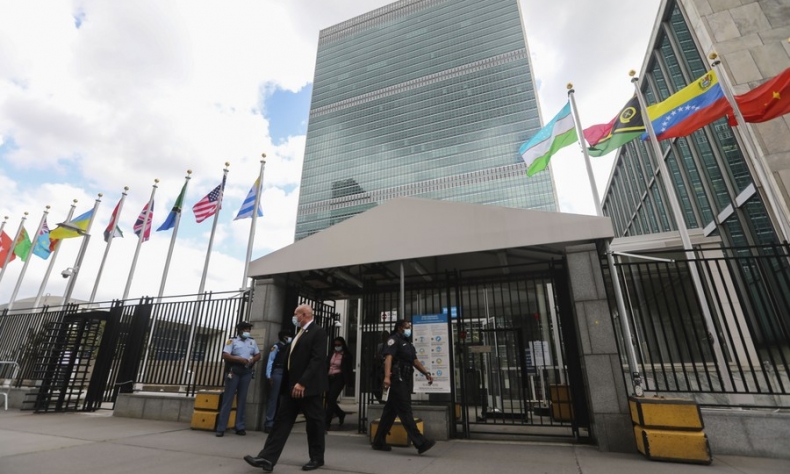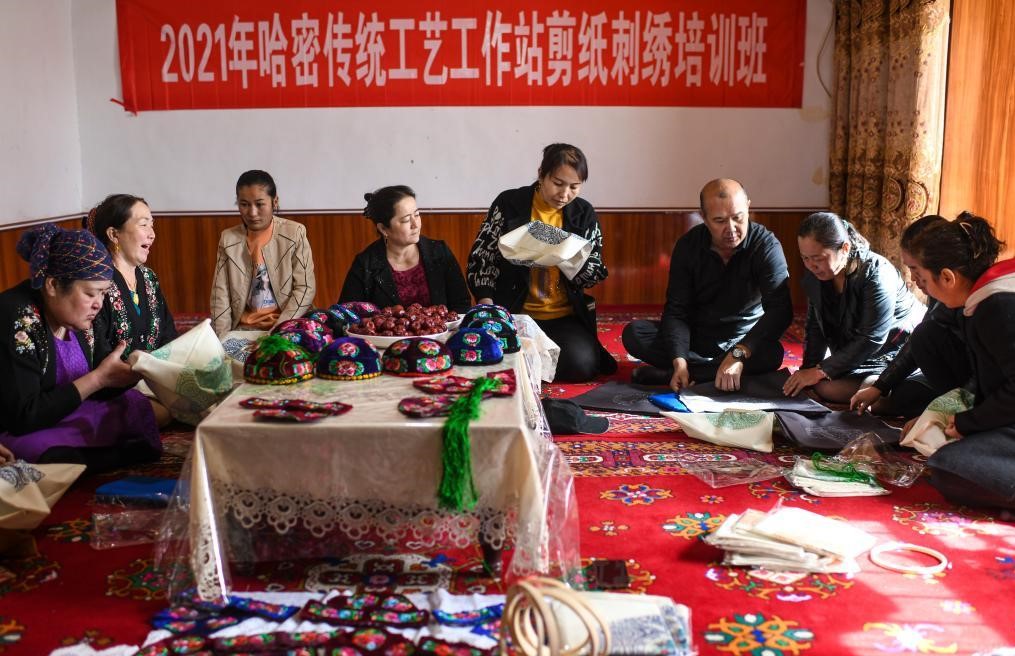50 Years in the UN: Building a Community of Common Destiny for Human Rights

China will continue expanding and deepening its human rights protection, which is a welcome aspiration.
On Oct. 25, 50 years ago, the People’s Republic of China was welcomed to the UN as the lawful representative of China. The country has since implemented the UN’s acquis, i.e., the rules, norms, and practices accepted within the organization before its entry, especially human rights. Thus, the Universal Declaration of Human Rights has started to play an essential role in national human rights discourse.
Furthermore, China has submitted comprehensive reports to the bodies overseeing the human rights treaties to which it is a party and to the Human Rights Council as part of the Universal Periodic Review. It has engaged in discussions with these treaty bodies and the Human Rights Council about possible shortcomings. Chinese NGOs are constantly organizing side events during Human Rights Council sessions, during which international experts take the floor. China also hosts several important international human rights conferences, such as the Beijing Forum on Human Rights and the South-South Human Rights Forum, which has developed into the leading discussion platform on human rights in the Global South.
In addition, the State Council has launched and implemented four human rights action plans to promote and protect human rights in Chinese society. Furthermore, all Chinese children learn about human rights during their civic education course in middle school, which contains a module primarily devoted to this topic. And a growing number of universities are offering human rights courses and Ph.D. programs.
UN membership has brought much to China, and China has also offered a lot in return, mainly how the UN human rights mechanism operates. But, unfortunately, this comes at a time when the UN human rights mechanism is facing several serious challenges, such as the non- and underreporting by states to the treaty bodies. This is mainly due to many countries in the Global South regarding the format prescribed for their reports as a liberal straightjacket, which does not allow them to present their human rights accomplishments based on their culture and traditions.

The human rights discourse is also increasingly politicized, as demonstrated by a recent decision by the new Prosecutor at the International Criminal Court, Karim Khan. He decided to exclude alleged war crimes committed by U.S. armed forces during the Afghanistan investigation started by his predecessor. Instead, he would only scrutinize war crimes allegedly performed by the Taliban. But war crimes are war crimes, regardless of the perpetrator.
These ills can be redress with the help of the concept of building a community of shared future for mankind, also known as a community of common destiny, which China launched at the world stage in 2017 during the World Economic Forum in Davos.
The community of common destiny concept can turn the relationship between states within the international human rights system into a partnership based on respect and equality rather than a hierarchy. Countries will then no longer be allowed to use human rights as a Trojan horse to mask their civilizing mission.
The community of shared future will ensure that the culture within the international human rights system will become one of encouragement and assistance rather than criticism and condemnation. It calls for constructive human rights dialogue based on equality and respect, aiming to exchange creative ideas and best practices regarding human rights based on harmony. Participants should identify common dilemmas and try to find solutions for them jointly. The aim of the human rights dialogues should be learning through self-cultivation rather than lecturing others.

The community of common destiny concept also recognizes that the drafters intended the Universal Declaration to be a “big tent,” reflecting all worldviews and civilizations. This requires a fair representation of different views rather than one singular view as the sole acceptable human rights approach. Furthermore, the drafters of the Universal Declaration intended it to be applied first and foremost by the people in their relationships with others, which an inner drive should stimulate. It calls for human rights which enjoy cultural legitimacy, i.e., which match the values and norms of the people on the ground.
The community of common destiny will also challenge the myth that law enjoys a monopoly as the only means to implement international human rights obligations. Social institutions and culture are equally essential vehicles for human rights implementation, especially in the Global South. Encouraging states to rely on culture and social institutions as pillars of human rights protection is called the receptor approach to human rights.
During the past 50 years, China has shown its commitment to the UN human rights system. The country recently emphasized that it remains committed to building a better world in which democracy and freedom are a common pursuit to mark the anniversary. This signals that China will continue expanding and deepening its human rights protection, which is a welcome aspiration. At the same time, applying the concept of building a community of shared future for mankind will benefit the international human rights community.
Tom Zwart is Professor of Cross-cultural Law, Utrecht University; Director of the Cross-cultural Human Rights Centre, Free University of Amsterdam.
 Facebook
Facebook
 Twitter
Twitter
 Linkedin
Linkedin
 Google +
Google +










